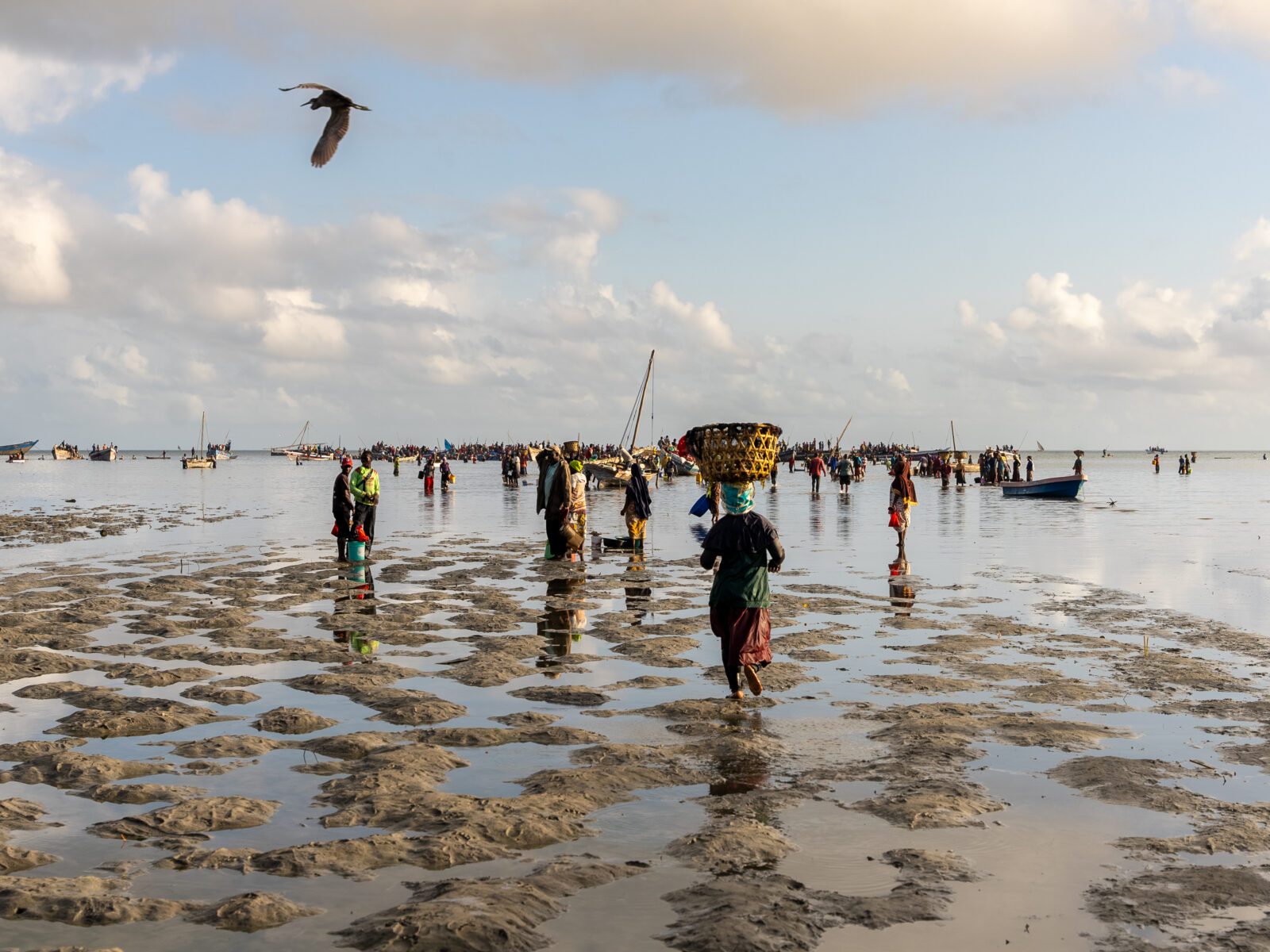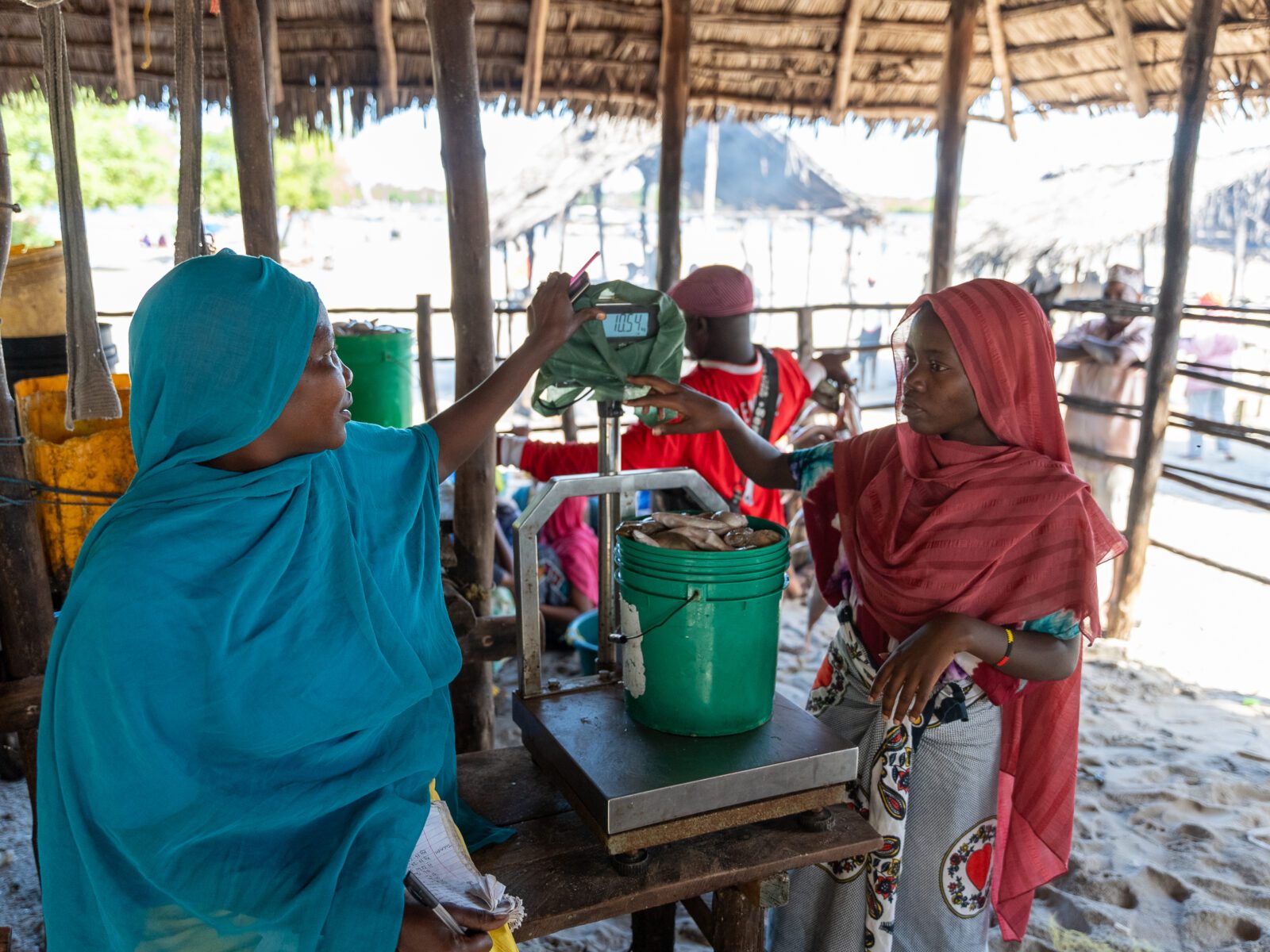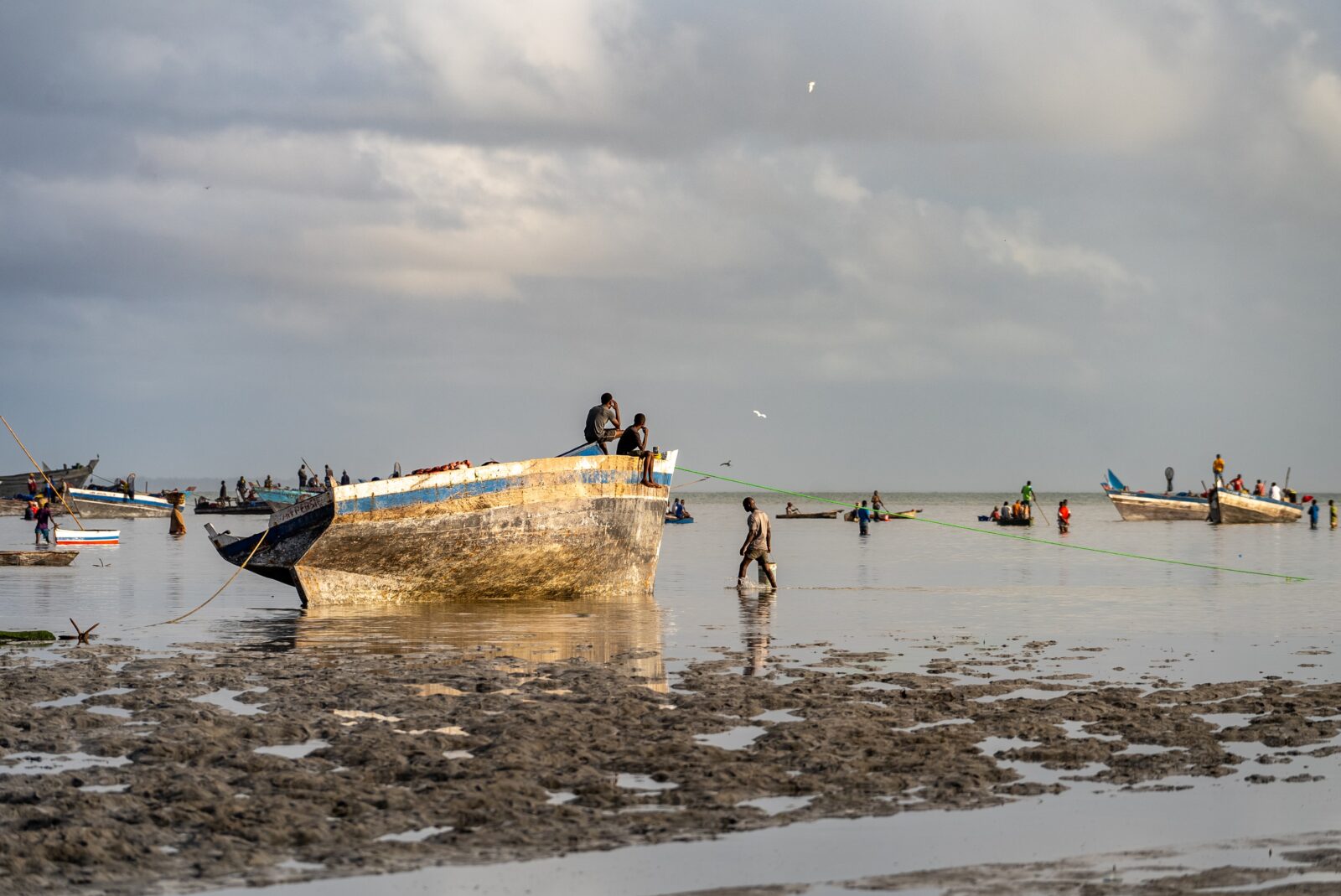Joan Otengo joined Blue Ventures in March 2023 as the Partner Support Coordinator for Kenya. Joan recently participated in a learning visit to Kilwa, Tanzania with the beach management unit (BMU) members from Kwale, Kenya. Here, she shares her personal experience of the exchange, focusing on the passionate women she met in the fishing sector and best practices for BMU networks working with the government.
One of the most important things I’ve learnt in my first six months at Blue Ventures is that peer-to-peer learning is the key to successfully replicating what works between partners and communities. To bring this to life the Kenya partner support team organised a learning visit for Kwale County Beach Unit, a network of 23 BMUs in Kwale to interact with their peers from Kilwa in southern Tanzania.
I could not contain my excitement at the thought of travelling to Tanzania, working with the community members and meeting new passionate people driving this movement forward. Internally, I was apprehensive about the experience and scared that my far from perfect Swahili would get in the way of meaningful communication with the community members.
The 8 hours drive from Dar es Salaam to Kilwa was filled with laughter and we spent the time comparing the scenery to our own. There were the same tall coconut trees, cassava, banana farms and makuti houses. We agreed that coastal communities are brothers and sisters, while we are separated by borders – the common culture built by the water knows no boundaries.
The welcome we received was touching and our hosts ensured we were comfortable at all times. I can testify to the Swahili saying ‘’Watanzania ni wakarimu” which means ‘Tanzanias are welcoming’. The spirit of Ujamaa (Brotherhood in Swahili) was visible in their openness in sharing information and togetherness.

Blue Ventures | Nick Poole
In our visit to the BMUs in Kivinje, Songomnara, Somanga and Njia Nne Matapatata, two things stood out:
- Young people and women are actively involved in the fishing sector not only as members of the community but also as a part of the leadership structure. I found this surprising because back home fishing is controlled by the older generation and mainly men. I loved seeing that the famous landing site for sardines locally known as ‘’Dagaa’’ is run by women. We even learnt that women own the big fishing boats in Kilwa and employ the men to go deep sea fishing.
- Kilwa’s fishing industry is a collaboration model between BMUs and the government, with BMUs actively managing and contributing funds to local development initiatives. This is the opposite in Kenya where government developments are initiated by the government and owned by the government.
It was extraordinary to learn about Kilwa’s octopus fishery closures and the returns they make on their catch. Since starting the octopus closures, the island and community have witnessed a vast improvement in their daily lives and income. This has led to increased community participation in conservation and the management of their own fisheries. The catch increase during the opening season has led to increased income because they now sell their catch to exporters rather than just local hotels. The success of the Kilwa community inspired the fishers from Kenya to replicate the model back home not only on octopus closures but with other fish species too.

Blue Ventures | Nick Poole
I feel delighted that I got to meet passionate and aspirational women in the fishing world and that we’ve witnessed what is possible when BMUs and government agencies work together. I truly believe that for meaningful development to occur, communities have to be at the centre of decision making. The future of marine and community prosperity lies in investing in BMUs networks and empowering them to work with the government.
Inspired by Kilwa, the Kwale BMU network is poised to engage with policymakers in Kenya, advocating for fisher-friendly policies and, more significantly, female participation in fisheries. This exchange has been a stepping stone towards a brighter future for marine resource management on both sides of the border, where collaboration and community involvement will be the driving forces behind sustainable change.

Blue Ventures | Nick Poole

